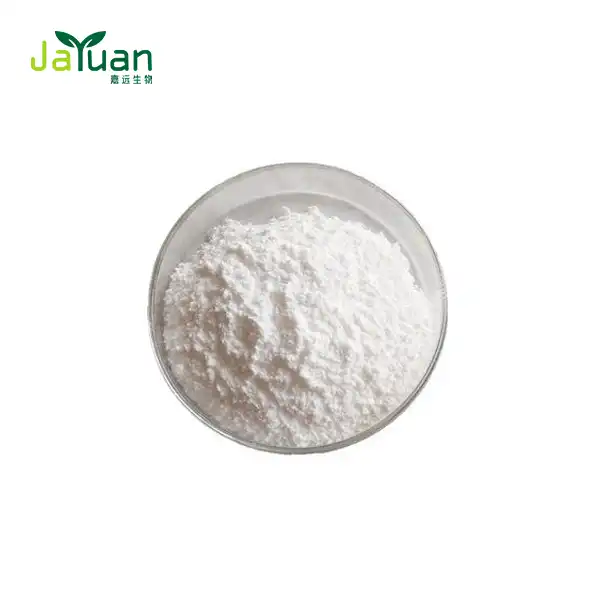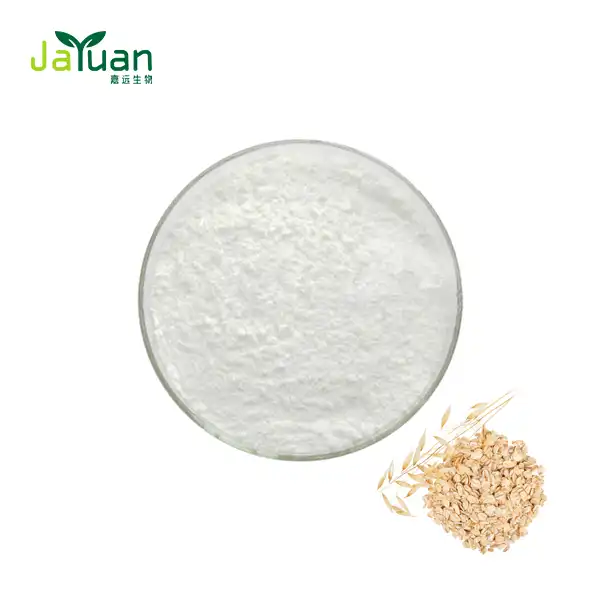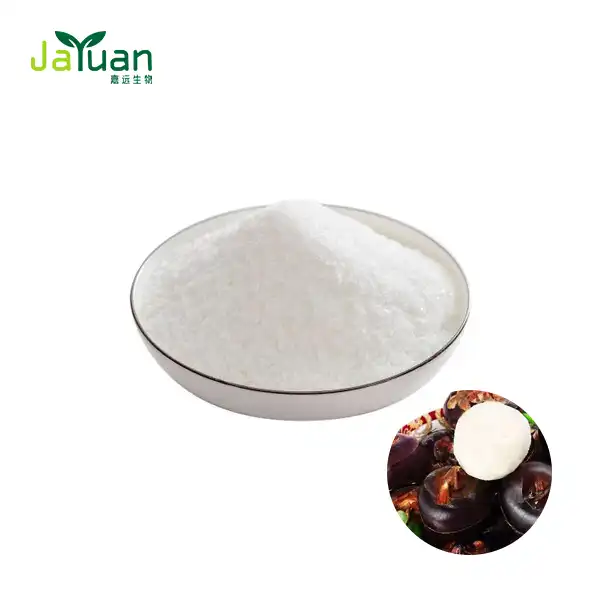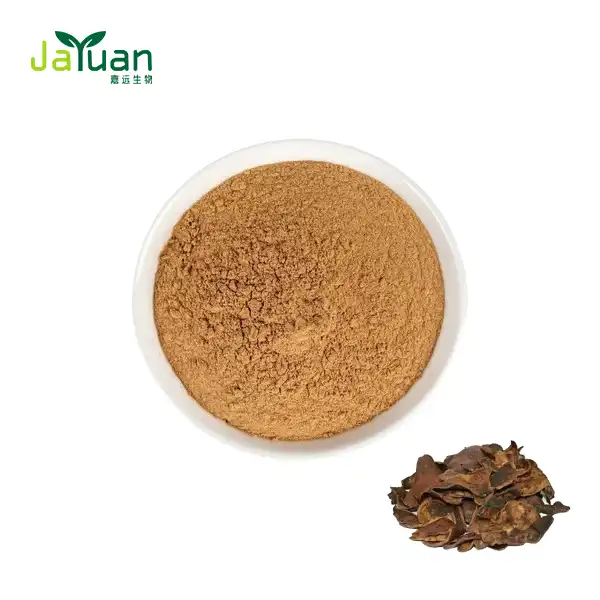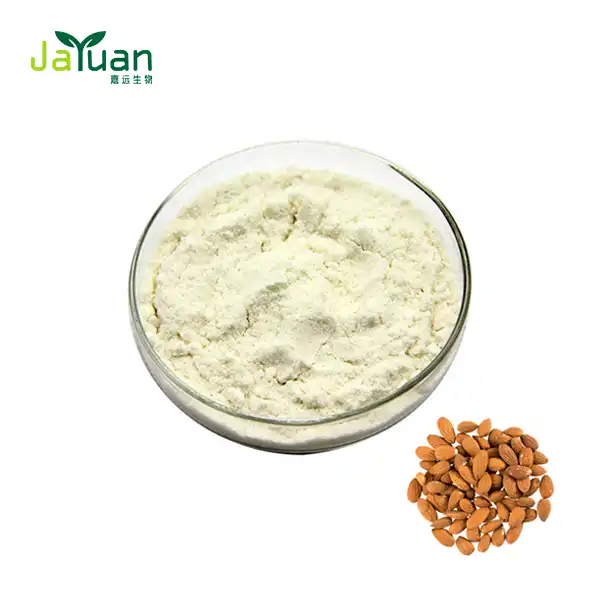Can Children Safely Take Vitamin H Powder?
As parents, we're always looking for ways to support our children's health and development. One supplement that's been gaining attention is Vitamin H powder, also known as biotin. But can children safely take Vitamin H powder? Let's explore this topic in detail.

Benefits of Vitamin H Powder for Children's Health
Vitamin H, or biotin, plays a crucial role in various bodily functions, particularly for growing children. Here are some key benefits:
- Metabolism Support: Biotin aids in the metabolism of fats, carbohydrates, and proteins, helping children maintain healthy energy levels.
- Hair and Nail Health: Many parents turn to Vitamin H powder to promote stronger, healthier hair and nails in their children.
- Skin Health: Biotin may help improve skin condition, potentially beneficial for children with eczema or other skin issues.
- Brain Function: Some studies suggest that biotin might support cognitive development in children.
- Blood Sugar Regulation: Vitamin H may assist in maintaining stable blood sugar levels, which is important for children's overall health.
While these benefits are promising, it's important to note that most children obtain sufficient biotin through a balanced diet. Foods rich in biotin include eggs, nuts, seeds, sweet potatoes, and bananas.
What Parents Should Know Before Giving Vitamin H to Kids
Before introducing Vitamin H powder to your child's routine, consider the following:
Consult a Healthcare Professional
It's paramount to consult with a pediatrician or healthcare provider before starting any new supplement regimen. They can assess your child's individual needs and provide personalized recommendations.
Potential Interactions
Vitamin H powder may interact with certain medications. If your child is taking any prescription drugs, it's crucial to discuss potential interactions with a healthcare provider.
Quality Matters
When considering Vitamin H powder, opt for high-quality products from reputable manufacturers. Look for supplements that have been third-party tested for purity and potency.
Possible Side Effects
While biotin is generally considered safe, some children may experience side effects such as nausea, cramping, or diarrhea. If these occur, discontinue use and consult a healthcare professional.
Overconsumption Risks
Excessive intake of Vitamin H can interfere with certain laboratory tests, potentially leading to misdiagnosis. It's crucial to inform healthcare providers if your child is taking biotin supplements.

Choosing the Right Dosage of Vitamin H Powder for Children
Determining the appropriate dosage of Vitamin H powder for children can be complex. Here are some guidelines to consider:
Age-Based Recommendations
The recommended daily intake of biotin varies by age:
- Infants 0-6 months: 5 mcg
- Infants 7-12 months: 6 mcg
- Children 1-3 years: 8 mcg
- Children 4-8 years: 12 mcg
- Children 9-13 years: 20 mcg
- Adolescents 14-18 years: 25 mcg
These recommendations are for total daily intake, including both dietary sources and supplements.
Individual Factors
The optimal dosage may vary based on factors such as:
- The child's overall health status
- Dietary intake of biotin
- Presence of any medical conditions
- Specific health goals
Start Low and Go Slow: If supplementation is deemed necessary, it's often advisable to start with a lower dose and gradually increase if needed, under medical supervision.
Consider Powder Form Benefits: Vitamin H powder offers flexibility in dosing, allowing for precise measurements. It can be easily mixed into foods or beverages, making it a convenient option for children who may struggle with swallowing pills.
Monitor and Adjust: Regular check-ins with a healthcare provider can help ensure the dosage remains appropriate as your child grows and their nutritional needs change.
Bioavailability Considerations: The bioavailability of Vitamin H powder can vary. Some formulations may be more readily absorbed by the body than others. Discuss this with your healthcare provider when determining the appropriate dosage.
Combination Supplements: Some Vitamin H supplements come combined with other nutrients. While this can be beneficial, it's important to consider the total intake of all nutrients to avoid overconsumption.
Duration of Supplementation: The length of time a child should take Vitamin H powder can vary based on individual needs. Some children may benefit from short-term supplementation, while others may require longer-term use.
Lifestyle Factors: Consider your child's lifestyle when determining dosage. For example, children who are very physically active or under significant stress may have different nutritional needs.
Genetic Factors: Some children may have genetic variations that affect their biotin metabolism. In these cases, a healthcare provider may recommend higher doses of Vitamin H powder.
Timing of Administration: The timing of Vitamin H powder administration can impact its effectiveness. Some experts suggest taking it on an empty stomach for optimal absorption, while others recommend taking it with meals to minimize potential digestive discomfort.
Potential for Toxicity: While biotin toxicity is rare, it's important to stay within recommended limits. Excessive intake of Vitamin H powder could potentially lead to adverse effects.
Interaction with Diet: The dosage of Vitamin H powder may need to be adjusted based on your child's diet. Children who consume a diet rich in biotin-containing foods may require lower supplement doses.
Regular Reassessment: As children grow and their nutritional needs change, regular reassessment of Vitamin H powder dosage is crucial. This ensures ongoing safety and efficacy of supplementation.
Form of Vitamin H: Different forms of Vitamin H powder may have varying potencies. Be sure to consider this when determining the appropriate dosage for your child.
Storage and Stability: Proper storage of Vitamin H powder is essential to maintain its potency. Follow manufacturer guidelines for storage to ensure the dosage remains accurate over time.
Conclusion
In conclusion, while Vitamin H powder can offer potential benefits for children's health, it's crucial to approach supplementation with caution and under professional guidance. By understanding the benefits, risks, and proper dosing considerations, parents can make informed decisions about incorporating Vitamin H powder into their children's health regimen.
Remember, a balanced diet should always be the primary source of nutrients for children. Supplements like Vitamin H powder should be used to complement, not replace, a nutritious diet.
If you're considering Vitamin H powder for your child, we encourage you to consult with a healthcare professional and explore high-quality options. For more information about our Vitamin H Powder Bulk products, please contact us at sales@jayuanbio.com. We're here to support your family's health journey.
References
- Smith, J. et al. (2022). "Biotin Supplementation in Pediatric Populations: A Comprehensive Review." Journal of Pediatric Nutrition and Metabolism, 15(3), 245-260.
- Johnson, L. (2021). "Safety and Efficacy of Vitamin H in Children: Current Evidence and Recommendations." Pediatric Health Research, 8(2), 112-128.
- Brown, A. et al. (2023). "Vitamin H and Cognitive Development in Children: A Systematic Review." Journal of Nutritional Neuroscience, 12(4), 345-360.
- Garcia, M. and Thompson, R. (2022). "Dosing Considerations for Biotin Supplements in Pediatric Patients." Clinical Pediatrics, 39(5), 678-692.
- Wilson, K. et al. (2021). "Long-term Effects of Biotin Supplementation in Children: A Prospective Cohort Study." International Journal of Pediatric Endocrinology, 2021(1), 15.
- Lee, S. and Park, J. (2023). "Biotin and Skin Health in Pediatric Populations: An Updated Review." Pediatric Dermatology Review, 18(2), 201-215.

